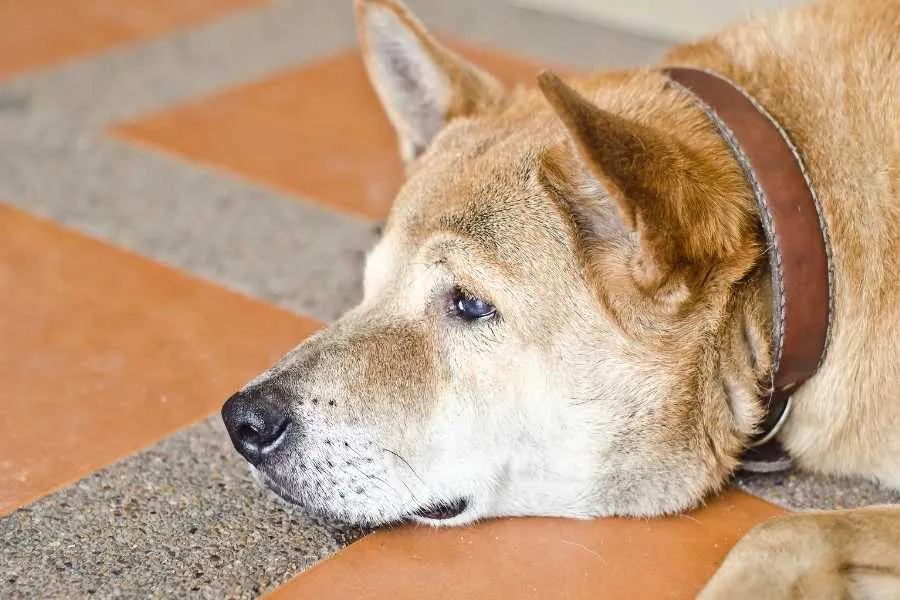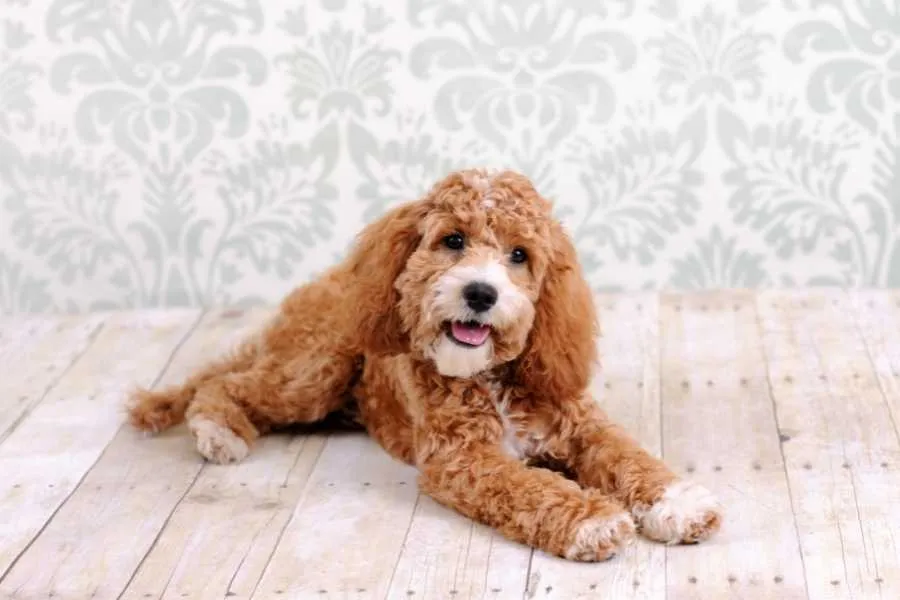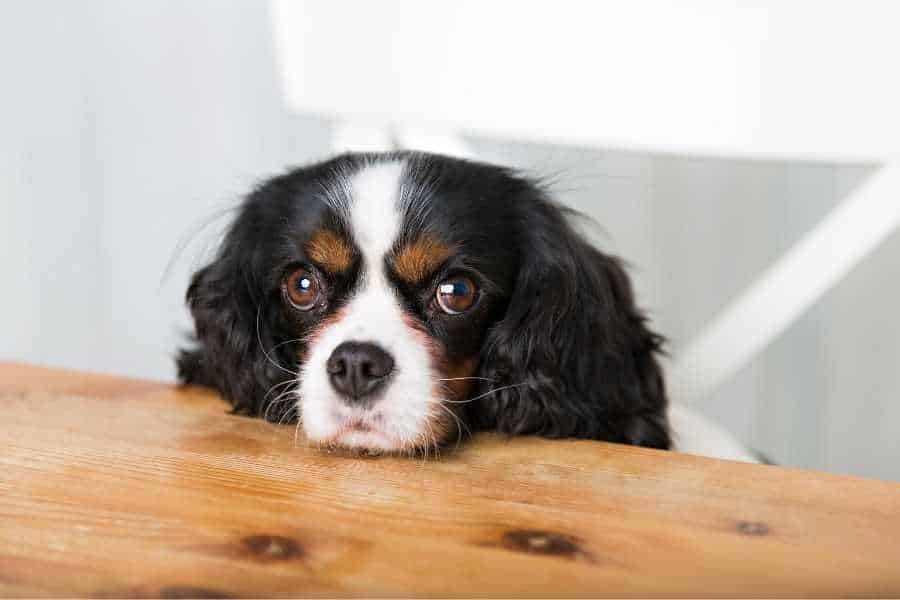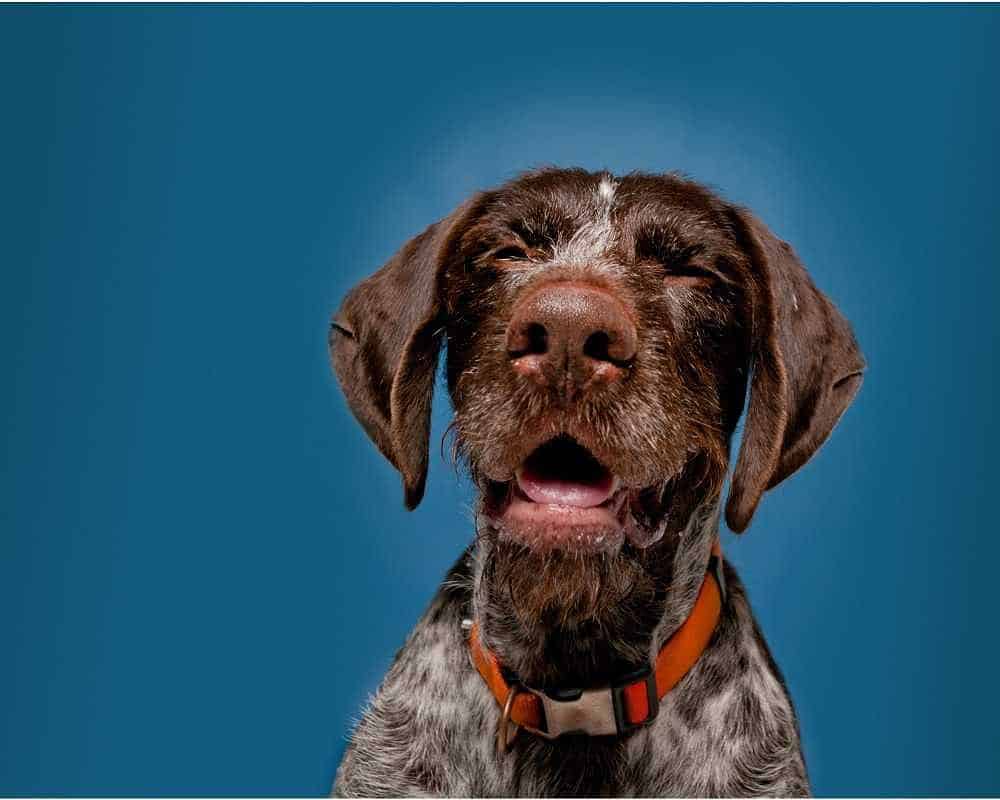If your dog has been sneezing a lot, it’s important to figure out the cause. Sneezing is often a sign that something is wrong, and if left untreated, it could lead to more serious health problems.
In this blog post, we’ll discuss six common causes of dog sneezing and when you should be worried. We’ll also provide some tips on how to keep your pup healthy and sneeze-free!
Why Do Dogs Sneeze?
Dogs sneeze for many reasons – from allergies and a cold to dust and other environmental factors. But why does a dog sneeze in the first place?

The answer lies in the dog’s respiratory system. When something irritates the nose – such as pollen, dust, or smoke – the dog’s body responds by trying to clear out the irritant. This is done by sneezing, which expels the irritant from the nose.
Dogs also sneeze when they have a cold, as the virus that causes a cold can also irritate the respiratory system. Sneezing helps to clear out the mucus and congestion caused by the cold virus. While sneezing is usually nothing to worry about, it can be a sign of something more serious if it occurs frequently with no obvious cause.
Causes of Sneezing
Allergies
One of the most common reasons for dog sneezing is allergies. Dogs can be allergic to a variety of things, including pollen, dust, dander, and even certain foods.
If your dog is sneezing due to allergies, you may also notice other symptoms, such as itching, scratching, watery eyes, and a runny nose. Allergies can be treated with medication, but it’s important to find out what your dog is allergic to so that you can avoid exposing them to the allergen.
Cold
Another common reason for dog sneezing is a cold. Just like humans, dogs can catch a cold from other sick dogs or from being exposed to viruses in the environment.
If your dog has a cold, you may notice other symptoms in addition to sneezing, such as a runny nose, congestion, coughing, and a fever. A cold usually goes away on its own within a few days, but you can give your dog over-the-counter medication to help relieve its symptoms.
Dust
Dust is another common irritant that can cause dog sneezing. If you live in a dusty environment or if your dog spends a lot of time outside, it may be more prone to sneezing fits.
To help reduce the amount of dust in your dog’s environment, vacuum regularly and keep your dog indoors when the air quality is poor. You can also give your dog a bath to help remove any dust that may be trapped in their fur.
If your dog is sneezing due to dust, you may also notice other symptoms, such as a runny nose or watery eyes. These symptoms can be treated with over-the-counter medication.
Other Causes
Several other factors can cause dog sneezing, including foreign objects in the nose, sinus infections, and even cancer. In some cases, dog sneezing may be a sign of something more serious, such as a tumor in the nasal cavity.

Why do dogs sneeze when they play?
The reason dogs sneeze when they play is the same reason they sneeze when they’re around dust or other irritants – to clear out the irritant from their nose.
When dogs play, they often put their noses close to the ground, where there can be a lot of dust and other irritants. Sneezing helps to clear out these irritants so that the dog can breathe more easily.
What is a reverse sneeze?
A reverse sneeze is a type of sneeze that occurs when the dog inhales sharply through its nose. This can happen when the dog is excited or when it’s around irritants, such as dust.
Reverse sneezing often sounds like the dog is gasping for air, and it may look like the dog is choking. However, reverse sneezing is not a medical emergency and the dog will usually stop sneezing on its own after a few minutes.
If your dog is reverse sneezing, you can help to stop the sneezing fit by massaging their throat or holding their nose shut for a few seconds. Once the dog has stopped sneezing, it’s important to remove any irritants from its environment, such as dust or pollen.

How To Tell If Your Dog Has A Cold And What You Can Do To Help Them Get Better
If you have noticed that your dog has been sneezing a lot lately, it may have a cold. Some common signs of a dog cold are excessive sneezing, discharge from the nose or eyes, coughing, and a reduced appetite. If you suspect that your dog has a cold, the first thing you should do is check with their veterinarian to confirm the diagnosis and get advice on the best course of treatment.
Depending on the nature of their symptoms, your vet may recommend taking specific medications or supplements, focusing on making sure that your dog stays well hydrated, or even trying natural remedies such as essential oils or herbal teas.
Whatever methods you decide to use, it is important to act quickly to reduce the severity of your dog’s cold and help them get back to their usual energetic selves as soon as possible.
Dusty Environments And How They Can Affect Your Dog’s Health
Dogs are naturally adapted to live outdoors, and a dusty environment can present some unique health challenges. Dust contains all kinds of harmful substances, including silica and various chemicals, which can irritate your dog’s respiratory system.
Known as upper respiratory tract disease, this condition typically manifests as a dog sneezing a lot or having difficulty breathing. In addition, dust particles can also be inhaled directly into the lungs, triggering chronic coughing and even pneumonia in severe cases.
To protect your dog from these health risks, it is important to minimize exposure to dust whenever possible. You can do this by using air filters or air purifiers in your home and dog-friendly grooming practices like frequent brushing and bathing.
Additionally, consider keeping your dog out of dry dusty environments like dunes or construction zones whenever possible.

Tips for keeping your home clean and free of allergens that could cause problems for your pet
There are many different ways to keep your home clean and free of allergens that could cause problems for your pet. For starters, it is important to vacuum and dust regularly, using a powerful vacuum cleaner with a HEPA filter to trap small particles of dirt and dust.
You should also make sure to use both hot and cold water when washing dishes and clothes, as the heat can kill certain types of bacteria that might cause allergic reactions in your pet.
Additionally, you can keep potential allergens out of the air by installing an air purifier in key areas of your home, such as near the bed or in your living room. With these simple steps, you can help ensure that your home is free from allergens that could cause problems for your beloved pet!
Uncontrollable Sneezing in Dogs
Many dog owners are familiar with the frustrating experience of dog sneezing. Often triggered by environmental allergens like pollen, dust, and cigarette smoke, sneezing in dogs can be persistent and hard to control. If your dog is experiencing unexplained episodes of frequent sneezing, it’s important to take a closer look at its environment and seek advice from your veterinarian.
Blood tests or skin-prick tests can help to identify potential allergens, while other treatments like antihistamines or anti-inflammatory medications may help to get symptoms under control.
Ultimately, the best way to deal with dog sneezing is to identify the root cause and take steps to address it. Whether that means changing their diet or reducing exposure to allergy triggers, taking action early will help you keep your dog happy and healthy.
What Can I Give My Dog for Sneezing?
If your dog is sneezing frequently, it can be a cause for concern. Some common causes of sneezing in dogs include airborne allergies, bacterial infections, and sinus problems.
Depending on the underlying cause behind the sneezing, there may be different treatments that you can try to help ease your dog’s symptoms. For example, if your dog is sneezing due to an allergy, you may want to consider switching to food or treats with hypoallergenic ingredients. In some cases, antihistamine medications or steroid inhalers can also help minimize discomfort.

Additionally, various over-the-counter products can soothe irritated tissues in the nose and throat and help to relieve your dog’s sneezing spells. However, you must consult your veterinarian before administering any medications or supplements to ensure that they are safe for your dog’s specific condition.
Whatever the cause of your dog’s sneezing may be, seeking professional medical help is always the best option to get your furry friend back on the road to recovery as soon as possible.
When Should I Be Worried About My Dog’s Sneezing?
When your dog starts sneezing a lot, it can be worrisome at first. After all, we associate sniffling and sneezing with human illness, so the thought of our beloved dog coughing and sneezing can make us a bit anxious.
However, in most cases, canine sneezing is not caused for concern. This might seem counterintuitive at first – after all, isn’t excessive dog sneezing a sign of some sort of infection or irritation? In most cases, however, dog sneezing occurs as a response to something relatively benign, such as irritants in the air like dust or mold.
Allergies to food or other substances can also cause sneezing. In any case, if your dog is sneezing excessively and exhibiting other symptoms like lethargy or a loss of appetite, it’s always best to check in with your vet for guidance – especially if there’s been a recent change in your dog’s environment.
Ultimately though, routine dog sneezing is generally nothing to worry about as long as it doesn’t persist for too long or comes along with other symptoms. So go ahead and give your dog a big hug and some extra treats – it’ll be back to its healthy self in no time!
Conclusion
So why do dogs sneeze? In short, there are many reasons. Some are normal and nothing to worry about, while others may be a sign that your pup needs some help. If you’re ever concerned about your dog’s health, always consult with your veterinarian. But hopefully, this article has shed some light on the mysterious act of canine sneezing!

